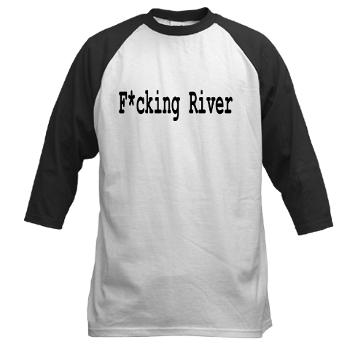Thursday, March 03, 2005
I finally had an opportunity tonight to sit down and put the new Poker Tracker Guide to use. I went through the first 30 pages, seeking out the leaks in my game.
I started out by looking the last month's worth of major sessions. Most of my time was spent at the $25NL tables. Without fail, each losing session was a splattering of tiny wins and losses, with one big loss to cripple me or take me out. First call of order: analyze those "big loss" hands ($10 or more on one hand).
I found two major trends to those hands.
1. Using brute-force aggression post-flop when I'd hit top or second pair, and then not slowing down when I was being called down or re-raised. One particular hand saw me drop $15 betting out like a madwoman on each street with just two overcards (QJ). I hit my Q on the river, and lost to pocket Kings - the guy just called me all the way down. Nice move, Shel!
Here's the thing - and I have to laugh at the irony. I have trouble raising pre-flop, even with monster hands. I feel like there's almost no way to feel comfortable betting until I see the texture of the flop. The irony is that I have no problem betting-betting-betting post flop, even on a bluff or semi-bluff, and apparently don't have too much trouble pushing all the way to the river with bets I haven't thought through. That is bad. Big time bad.
Note to self: think before EVERY SINGLE move. Don't just bet out because you bet out on the previous street. Re-evaluate your hand at each street and THINK THINK THINK.
I don't have this problem in live poker - probably because it's much more difficult to plan a move, grab chips, and bet them without showing signs of strength or weakness, than it is to go "click" with the mouse. It's way too easy to bet online.
Maybe I need to start taking my hand off the mouse after every move? You know, to force me to think before putting my hand back on the mouse?
2. The second obvious pattern came in the form of my good hands running into monsters. Some suffered the same problem described above: for example, on one hand, I was holding QQ. I raised it to 4x the BB like a good girl, and had 2 callers. One was A6s, and one was KK. Flop came 9-6-2 rainbow. Great flop for me! UTG, I bet out half the pot. Got called by both players. I should have been suspicious, but again, this is the biggest fishtank known to man, so who knows. Turn comes an Ace. Uh-oh. I bet out again, half the pot. Call, raise. I called the raise, as does my opponent. River comes a blank, and I bet out again. (Maybe I should have checked here?) My opponent calls, second guy raises, and I call the raise (being so far invested that I can't see how not to). I lost to two pair, Aces and sixes. If I'd have slowed down on the betting a little, maybe I'd have noticed my opponent's behavior. I shouldn't take re-raises so lightly.
Several of my other big losers were victims of the river monster. I'd raise it up with the best hand pre-flop, bet the flop, bet the turn, and of course bet the river when my opponent had just made his flush, or top pair over mine. Sadly, in all of these cases, my opponents did not have proper pot odds to call my initial raise and flop bets. But, they called anyway, and such is life. I don't feel like I can fault myself too much on those hands; I played them correctly and properly manipulated the pots. The one thing that might have helped in those cases was over-betting the pot early on, as opposed to putting the math just beyond pot-odds' reach. Besides, how many of my opponents even know what pot odds are?
The other monster-run-in pattern was that of my middle to big pocket pairs running into smaller pairs that hit trips on the flop or turn. Again, a little "slow-up" could probably help me here, but it's hard to defend against a trap. I don't yet have a feel for it. Maybe I should be raising it up higher pre-flop, to drive those pairs out? But, again, my concern is - how many of my opponents would lay down a pocket pair? I know **I** can lay down a baby pocket pair to a 5xBB pre-flop raise, but from the general fishiness around, I think more often than not, my raises would be called.
The biggest lesson I'm taking from this session of analysis is to stop and THINK before I act. Don't just use brute force post-flop. And since I obviously am able to push my chips in blindly like that, use some of that aggression pre-flop instead! Get the calling stations out of the pot BEFORE the flop, so they don't have a chance to catch on me.
Sounds like a plan.









